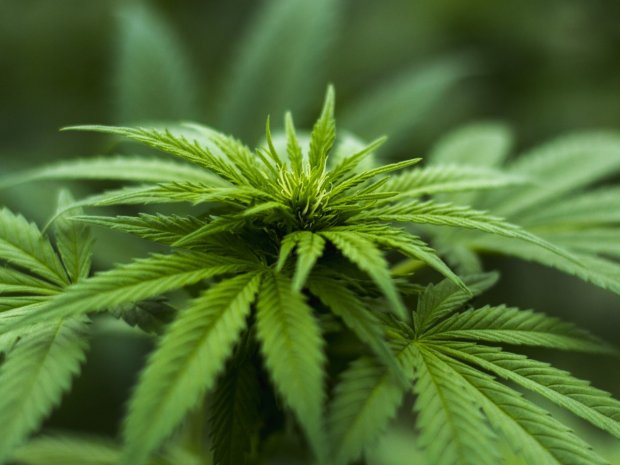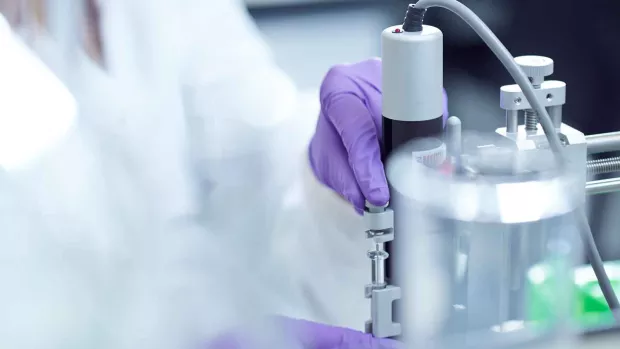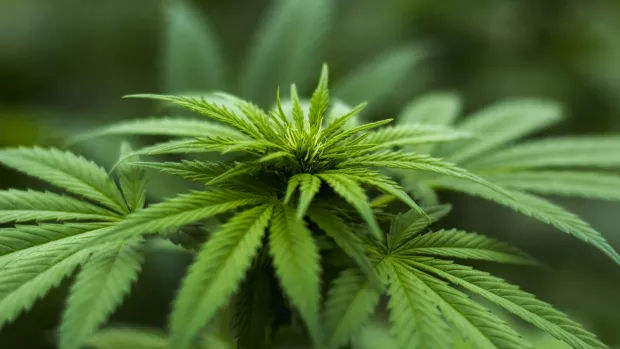
Cannabis and MS research: what’s the evidence?
In November 2018, the UK Government announced that cannabis can be legally prescribed. We take a look at the scientific evidence for medicinal cannabis as a treatment for MS symptoms.
Many people with MS use medicinal cannabis (products that come from the cannabis plant) to manage their MS symptoms. Cannabis is made up of compounds called cannabinoids.
The two main cannabinoids we think help with medical conditions are called:
- delta-9-tetrahydrocannabidol (THC)
- cannabidiol (CBD)
Most research focuses on products containing both THC and CBD – like Sativex, an oral spray licensed in the UK to treat MS spasticity.
Some people tell us products containing CBD alone help them. But so far, no scientific studies have tested whether CBD by itself improves MS symptoms.
What's the evidence that products with CBD and THC can help MS?
In 2017, we published a report on cannabis and MS, using reviews carried out by the American Academy of Neurology (AAN).
Our medical advisors concluded that cannabis products could improve quality of life for about 10,000 people with MS.
Research into cannabis for MS spasticity (muscle stiffness and spasms)
The AAN found people with MS using cannabis-based products were more likely to report improvements in spasticity than people taking a placebo. This finding was confirmed more recently in a review by the National Academies of Science, Engineering and Medicine (NASEM).
When cannabis products for spasticity are assessed using objective clinical tests, it's less clear if it helps. For example, a large trial at the University of Plymouth called CAMS initially found no difference between oral cannabis and a placebo during a test run by doctors. But after twelve months, they saw a small positive effect on spasticity, suggesting treatment needs to continue in the long-term.
Research into cannabis for MS pain
Both the AAN and NASEM reviews also found that cannabis-based products helped with MS pain. This was true for different types of pain, including central neuropathic pain (pain that feels like burning or pins and needles) and pain from spasms.
Cannabis products were effective both when pain levels were reported by people with MS, and when they were assessed using objective clinical measures.
Research into cannabis for other MS symptoms
Studies have also explored how cannabis-based products affect other symptoms. For example, the NASEMS review concluded that cannabis-based products could improve sleep in MS. Several UK studies (the CAMS and MUSEC trials) showed that people with MS taking an oral cannabis product reported better sleep than those taking a placebo.
The AAN review also suggested that oral cannabis products can stop you needing the loo so often. But there wasn't convincing evidence to support using cannabis to treat bladder problems or tremor.
Cannabis as a disease modifying therapy (DMT)
Although most research has focused on symptom-relief, a study from 2013 tested whether a cannabis-based product could protect nerves in MS. Unfortunately, results showed no difference in the rate of progression between people taking the cannabis product and those taking a placebo.
Smoked cannabis
Research so far hasn't given us enough evidence to draw a conclusion about the effectiveness of smoking cannabis on MS symptoms. But we do know smoking is harmful to people with MS.
What next?
Research into cannabis continues, with scientists reporting new findings. Last year, a study from University College London showed a positive effect on spasticity when a synthetic compound that mimics cannabinoids was given at a higher dose.
But we need more research to fully understand how different products could benefit people with MS. Part of the reason for the limited research is the stigma associated with cannabis. Because it's an illegal substance there are strict regulations around getting cannabinoids for research.
We welcome applications for research projects investigating cannabis for MS, and are campaigning for better access to medicinal cannabis for people with MS.
Explore research reports
- Read our report on cannabis and MS
- Read a PDF of the American Academy of Neurology (AAN)'s review of Medical Marijuana in certain neurological disorders
- Read The Health Effects of Cannabis and Cannabinoids: The Current State of Evidence and Recommendations on the National Academies of Science, Engineering and Medicine (NASEM)'s website
- Read about the University of Plymouth trial that found no difference between oral cannabis and a placebo on the National Center for Biotechnology Information's website
- Read about the University of Plymouth trial (CAMS) where they saw a small positive effect on spasticity on the National Center for Biotechnology Information's website
- Read the Multiple Sclerosis and Extract of Cannabis (MUSEC) trial results on the British Medical Journal's website
- Read a study from 2013 that tested if a cannabis-based product could protect nerves in MS on the National Center for Biotechnology Information's website
- Read the University College London study on cannabis and spasticity on ECTRIMS website



